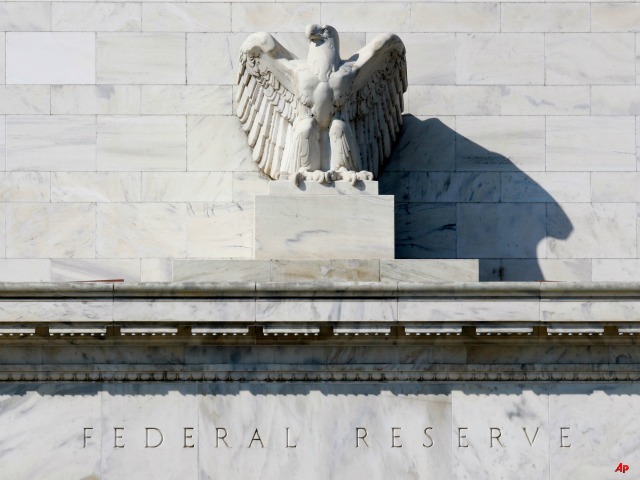Despite a plethora of naysayers who doubt the U.S. economy is really gaining steam, the Federal Reserve is positioning its own investments for higher inflation and rising interest rates. As I predicted in August, once the Fed’s balance sheet peaked at just over $4 billion, oil prices began to plummet. The Fed dumping $259.2 billion in bonds in the last 90 days can only mean it is scared of inflation.
Former Federal Reserve Chairman William McChesney Martin famously said the main job of the Fed is “to take away the punch bowl just as the party gets going.” As I also pointed out on March 19, Yellen indicated that if the risk of inflation rose, the Fed would quickly tighten credit. Yellen’s bond dumping seems to warn that higher inflation is on the horizon.
This is why I believe it is also very important that chief economics correspondent for The Wall Street Journal, Jon Eric Hilsenrath, just reported that Federal Reserve officials are seriously considering an important shift in the monetary policy that may be released at the conclusion of the Fed’s December 16 and 17 board meeting next week. Since December 2008, the Fed has assured investors and businesses that short-term interest rates would stay at about zero percent for a “considerable time.”
The WSJ interviewed Fed Vice Chairman Stanley Fischer last week. When asked how long the Fed would repeat the magic words, “considerable time,” to continue to reassure investors, Fischer said, “It’s clearer that we’re closer to getting rid of that than we were a few months ago.”
Despite ups and downs in the quarterly reports since the March 2009 bottom of the stock market, the United States GDP has grown fairly consistently. It has exceeded a strong 3% in four of the last five quarters and a blistering 4% in two quarters. Private sector job growth is at its fastest rate since the 1999 “dotcom” boom.
Economic prospects are tanking across Europe, Russia, Japan, and India. But the U.S. is in an epic oil boom. The doubling of America’s oil production in six years has resulted in a 35% drop in oil prices. The economic result is that $90 billion of cash is now flowing from the balance sheets of energy producers to the balance sheets of U.S. energy consumers. Lower-priced gasoline will act as a middle class tax cut. Consumers are spending the extra cash suddenly in their pockets on consumer durables, such as cars and appliances.
Just like negative articles in newspapers stimulated newspaper sales in the past, there is almost always too much pessimism in the blogosphere regarding the U.S. economy. Since Ronald Reagan’s presidency in 1983, the U.S. economy has been in expansion for 350 months and in recession for just 34 months, or 10%. The U.S. government’s current economic policies may be hurting growth, but they also hurt growth often in the past.
The Fed will meet for two days on December 16 and 17 to analyze and debate the strengths or weaknesses of the U.S. economy. But starting at midnight on Monday, December 8, Fed members will go into “no-comment-mode” to prevent insiders form learning the Fed’s game plan and illegally “front-running” the securities markets.
Chriss Street suggests that if you are interested in California business and politics, please click on “Twenty Years after OC Bankruptcy and $5 Billion in Pension Debt.”

COMMENTS
Please let us know if you're having issues with commenting.